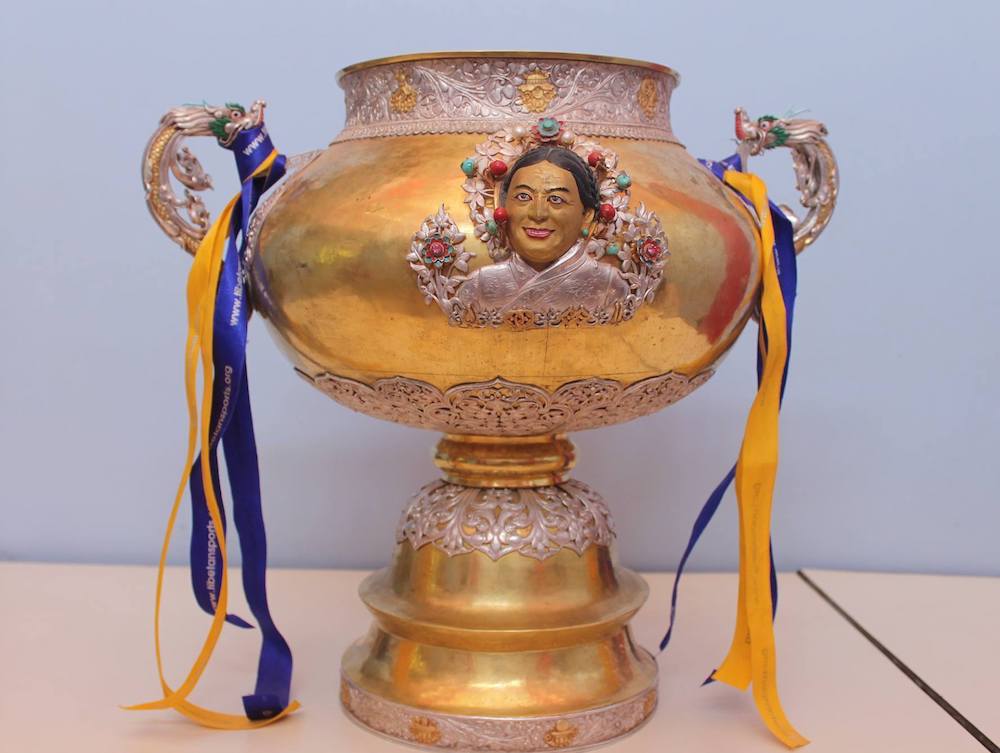By Tanya Nolan
ELIZABETH JACKSON: A group of Victorian MPs are vowing to push ahead with a pro-Tibet advertising campaign, during the visit next week to Australia of the Chinese President, Hu Jintao, despite what they describe as “intimidating” behaviour of a senior Chinese official based in Victoria.
China’s Consul-General in Melbourne has written a letter to a Victorian Upper House MP, Elaine Carbines, from the group Parliamentary Friends of Tibet, reminding her that Tibet is a very sensitive issue for China.
The MPs have put their names to a newspaper advertisement designed by the Australia Tibet Council, which will be published when President Hu visits next week, urging him to re-establish dialogue with Tibet’s exiled spiritual leader, the Dalai Lama.
Meanwhile, as Tanya Nolan reports, Federal MPs are also mobilising their protest at President Hu’s visit to Canberra, signing a petition to be presented to senior Chinese officials.
TANYA NOLAN: This is just some of the letter that has so-offended Victorian Upper House MP Elaine Carbines:
“I am now writing to remind you that the Tibet issue is an internal matter of the People’s Republic of China which is very sensitive. Tibet has been a part of China since the Yuan Dynasty in the mid-12th to mid-13th century, and it is recognised by the whole international community, including the Australian Government, that Tibet is a part of China.”
TANYA NOLAN: But it’s the plans being hatched by Ms Carbines and other Parliamentary members of the Friends of Tibet that have offended the Chinese Consul-General to Victoria, Mr Junting Tian.
He wrote the letter concerned that Ms Carbines had been mobilising members of the Victorian Parliament to place a newspaper advertisement next week, to coincide with the visit of President Hu Jintao, which calls on China to re-establish dialogue with the Dalai Lama about the future of Tibet.
But Elaine Carbines says the Consul-General’s behaviour has been intimidatory and heavy-handed.
ELAINE CARBINES: He has approached my electorate office in relation to establishing a meeting, which I’m prepared to take to our next meeting of the Parliamentary Friends of Tibet, uh, raise that matter with my colleagues from the Victorian Parliament and then I was concerned to learn that he had also come to the Victorian Parliament on Wednesday night, and sought a meeting with the presiding officers, the Speaker and the President, at which he raised my conduct with them.
TANYA NOLAN: Why does that concern you?
ELAINE CARBINES: Well, I find that, um, pretty intimidating that a Consul-General would approach the Victorian Parliament to raise concerns about my behaviour as a member of Parliament, which I consider I have every right to express a view as a democratically elected member of Parliament in Victoria, and indeed in Australia. And I thought that was a very, very confronting action that he took to come to the Parliament and seek that meeting.
TANYA NOLAN: A staff member from the office of the Chinese Consul-General in Melbourne, said Mr Junting was too busy to speak to the media, but she did say that the matter is not so serious, that the Consul-General was simply expressing his view, concerned that some MPs want to create a not-so-friendly atmosphere for the President’s visit.
But Elaine Carbines begs to differ.
ELAINE CARBINES: That may be their take on it. My take is that it was a clear act of some intimidation of myself and through me, other members of the Parliamentary Friends of Tibet.
TANYA NOLAN: Victoria’s Shadow Education Minister, Victor Perton, who’s also a member of the Friends of Tibet says the matter must be treated sensitively while preserving the right to free speech.
VICTOR PERTON: My grandfather and my great-grandfather were executed by a communist government, so I have a deep loathing of communism and of oppressive governments and what I have seen that is being done to the Tibetan people and their rights fills me full of loathing.
But when you’re in Federal Government or State Government, you have to deal with countries both in terms of trade and diplomatic relations, and I think all of us understand that and that’s why I think the wording of the advertisement and the wording of the letter is reasonably restrained.
TANYA NOLAN: And while the focus has been on how Federal MPs will respond to the American President’s address to Parliament, there’s been little discussion surrounding President Hu’s impending visit.
But a petition is circulating amongst Parliamentarians, and Tasmanian Senator Brian Harradine has raised the issue in the Senate this week, asking Senator Robert Hill whether the Government will be discussing human rights concerns with the Chinese President.
And he says he’s not alone in his views.
BRIAN HARRADINE: You’ve got people from the…both major parties, you’ve got people from the Greens, the Democrats and others.
TANYA NOLAN: Will you be respecting President Hu within the Parliament?
BRIAN HARRADINE: Well I have difficulty in regard to his speaking in the Chamber, the Parliamentary Chamber. He is not an elected official; this is a precedent. I’m not going to be in a situation of dropping me strides when President Hu comes to make a point.
TANYA NOLAN: Senator Hill says there have been signs in recent years of significant improvements in human rights in China, but says the Australian Government has taken the opportunity, where appropriate, to raise these issues with China and point out particular instances of conduct that may still be regarded as unsatisfactory.
ELIZABETH JACKSON: Tanya Nolan with that report.









